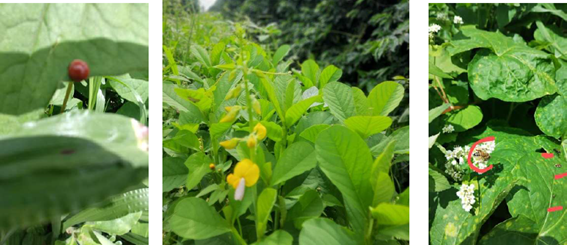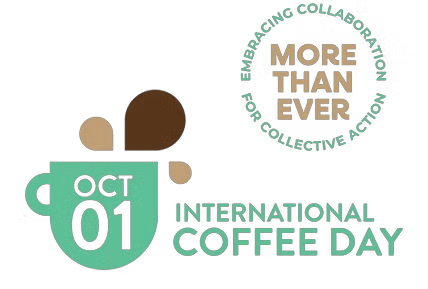Cecafé and Emater-MG announced a partnership on International Coffee Day to promote regenerative farming practices.
Since 2015, October 1 has been celebrated as International Coffee Day. The date was established by the International Coffee Organization (ICO) to create a single global occasion celebrating coffee lovers worldwide and to raise awareness of the work carried out by millions of coffee-rowing families, as well as the main challenges faced throughout the global coffee chain.
Each year, International Coffee Day highlights a theme related to sustainability. On October 1, 2025, celebrations centered on the power of collaboration to drive sustainable development, strengthen resilience, and promote income generation in coffee-growing communities. To this end, the ICO launched the global campaign “Embracing Collaboration More Than Ever.”
In line with the theme of this year’s International Coffee Day, Cecafé announced a new strategic partnership with the Technical Assistance and Rural Extension Company of Minas Gerais (Emater-MG) under the Building Healthy Soils Program (Programa Construindo Solos Saudáveis).
The goal of the program is to promote the adoption of regenerative agricultural practices aimed at improving soil structure and fertility on rural properties through the use of cover crops.
Cover crops are essential for building more resilient and sustainable farming systems. In coffee farming, they play a key role in soil regeneration, particularly in areas previously degraded or under intensive land use.
Crops such as pigeon pea, sunn hemp, pearl millet, buckwheat, and forage radish are commonly used for their favorable agronomic traits. They help fix nitrogen, improve soil structure, increase water infiltration, reduce nutrient leaching, and regulate soil temperature.
In addition, cover cropping helps suppress weeds, reducing the need for synthetic herbicides. As a result, it has also become an important strategy for mitigating the risk of losing access to key markets, such as the European Union, where maximum residue limit (MRL) regulations are becoming increasingly restrictive for certain herbicide molecules.
Another benefit is enhanced biodiversity. The use of cover crops contributes to the diversification of agroecosystems, creating more balanced environments that are less susceptible to pests and diseases. In agroforestry and organic systems, cover crops are fundamental pillars of both productive and environmental success.

The use of cover crops between coffee rows was one of the practices analyzed under Cecafé’s carbon agenda through the Carbon Balance in Coffee Growing in Minas Gerais study, conducted by the Institute for Forest and Agricultural Management and Certification (Imaflora) and Professor Carlos Cerri of Esalq/USP.
The findings show that maintaining soil cover, combined with other conservation practices, results in a negative (sequestration) carbon balance of 10.5 t CO₂ eq/ha per year in Arabica coffee areas — concrete evidence of the potential of regenerative coffee growing to mitigate the effects of climate change.
The collaboration between Cecafé and Emater-MG will help translate these carbon-related actions from theory into practice in the field, leveraging the technical expertise and outreach capacity of the state agency, along with the support of coffee exporters to broaden knowledge among
producers.
In this first phase, the partnership aims to establish Demonstration Units (DUs) on farms in southern Minas Gerais and the Cerrado Mineiro region. These units are designed to show producers the benefits of cover cropping for improving soil health, increasing biomass production, suppressing weeds, and enhancing climate-change adaptation, among other outcomes.
In addition to establishing the DUs, the partnership also includes: (i) field days focused on sustainable management practices; (ii) specialized technical assistance for producers; (iii) soil analyses and biomass assessments; (iv) engagement of coffee growers supported by Cecafé’s member exporters; and (v) preparation of technical reports based on DU evaluations.
Together with Emater-MG, Cecafé celebrated the 11th International Coffee Day not only as a tribute to a beverage that connects cultures and people around the world, but also as an opportunity to acknowledge and strengthen joint efforts to build a fairer, more resilient, and more sustainable coffee value chain.

Marcos Matos
CECAFÉ CEO
Silvia Pizzol
CECAFÉ Sustainability Director



Leave A Comment